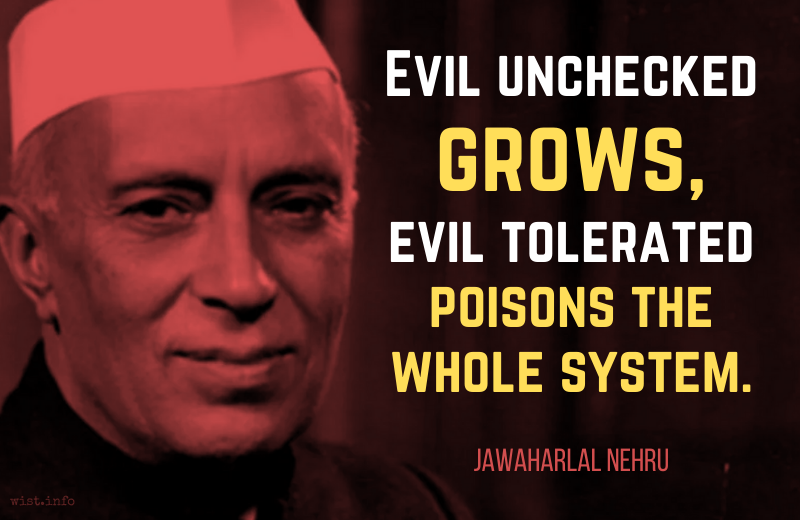But you, Roman, remember, rule with all your power
the peoples of the earth — these will be your arts:
to put your stamp on the works and ways of peace,
to spare the defeated, break the proud in war.[Tu regere imperio populos, Romane, memento
(Hae tibi erunt artes), pacique imponere morem,
Parcere subjectis et debellare superbos.]Virgil (70-19 BC) Roman poet [b. Publius Vergilius Maro; also Vergil]
The Aeneid [Ænē̆is], Book 6, l. 851ff (6.851-53) [Anchises] (29-19 BC) [tr. Fagles (2006), l. 981ff]
(Source)
Comparing the Roman "arts" to the arts at which other nations excel (metalwork, sculpture, oratory, astronomy).
(Source (Latin)). Alternate translations:
Be thou ambitious how to govern best,
In these arts, Roman, thou must be profest.
That we a peace well grounded may injoy,
Subjects to spare, and Rebels to destroy.
[tr. Ogilby (1649)]
But, Rome, 'tis thine alone, with awful sway,
To rule mankind, and make the world obey,
Disposing peace and war by thy own majestic way;
To tame the proud, the fetter'd slave to free:
These are imperial arts, and worthy thee.
[tr. Dryden (1697)]
To rule the nations with imperial sway be thy care, O Romans: these shall be thy arts; to impose terms of peace, to spare the humbled, and crush the proud.
[tr. Davidson/Buckley (1854)]
But ye, my Romans, still control
The nations far and wide:
Be this your genius -- to impose
The rule of peace on vanquished foes,
Show pity to the humbled soul,
And crush the sons of pride
[tr. Conington (1866)]
But thou, O Roman, bend thy mind to rule
With strength thy people. This shall be thy art;
And to impose the terms and rules of peace;
To spare the vanquished, and subdue the proud.
[tr. Cranch (1872), l. 1069ff]
Be thy charge, O Roman, to rule the nations in thine empire; this shall be thine art, to lay down the law of peace, to be merciful to the conquered and beat the haughty down.
[tr. Mackail (1885)]
But thou, O Roman, look to it the folks of earth to sway;
For this shall be thine handicraft, peace on the world to lay,
To spare the weak, to wear the proud by constant weight of war.
[tr. Morris (1900), l. 850ff]
Thou, Roman, rule, and o'er the world proclaim
The ways of peace. Be these thy victories,
To spare the vanquished and the proud to tame.
These are imperial arts, and worthy of thy name.
[tr. Taylor (1907), st. 114, l. 1023ff.]
But thou, O Roman, learn with sovereign sway
To rule the nations. Thy great art shall be
To keep the world in lasting peace, to spare
humbled foe, and crush to earth the proud.
[tr. Williams (1910)]
Remember thou, O Roman, to rule the nations with thy sway -- these shall be thine arts -- to crown Peace with Law, to spare the humbled, and to tame in war the proud!
[tr. Fairclough (1916)]
Remember, Roman,
To rule the people under law, to establish
The way of peace, to battle down the haughty,
To spare the meek. Our fine arts, these, forever.
[tr. Humphries (1951)]
But, Romans, never forget that government is your medium!
Be this your art: -- to practise men in the habit of peace,
Generosity to the conquered, and firmness against aggressors.
[tr. Day-Lewis (1952)]
But yours will be the rulership of nations,
remember, Roman, these will be your arts:
to teach the ways of peace to those you conquer,
to spare defeated peoples, tame the proud.
[tr. Mandelbaum (1971), l. 1134ff]
Roman, remember by your strength to rule
Earth's peoples -- for your arts are to be these:
To pacify, to impose the rule of law,
To spare the conquered, battle down the proud.
[tr. Fitzgerald (1981), l. 1151ff]
Your task, Roman, and do not forget it, will be to govern the peoples of the world in your empire. These will be your arts -- and to impose a settle pattern upon peace, to pardon the defeated and war down the proud.
[tr. West (1990)]
Remember, Roman, it is for you to rule the nations with your power,
(that will be your skill) to crown peace with law,
to spare the conquered, and subdue the proud.
[tr. Kline (2002)]
Your mission, Roman, is to rule the world.
These will be your arts: to establish peace,
To spare the humbled, and to conquer the proud.
[tr. Lombardo (2005), l. 1012ff]
Roman, remember that your arts are to rule
The nations with your empire, to enforce the custom of peace,
To spare the conquered and to subjugate the proud.
[tr. @sentantiq (2018)]
You, Roman, remember your own arts: to rule the world with law, impose your ways on peace, grant the conquered clemency, and crush the proud in war.
[tr. Bartsch (2021)]
See also Bob Dylan, "Lonesome Day Blues", Love and Theft (2001):
I'm gonna spare the defeated --
I'm gonna speak to the crowd.
I'm gonna spare the defeated, boys,
I'm going to speak to the crowd.
I am goin' to teach peace to the conquered,
I'm gonna tame the proud.
Quotations about:
imperialism
Note not all quotations have been tagged, so Search may find additional quotes on this topic.
Fascist politics feeds off the sense of aggrieved victimization caused by loss of hierarchal status. Empires in decline are particularly susceptible to fascist politics because of this sense of loss. It is in the very nature of empire to create hierarchy; empires legitimize their colonial enterprises by the myth of their own exceptionalism. In the course of decline, the population is easily led to a sense of national humiliation that can be mobilized in fascist politics to serve various purposes.
Jason Stanley (b. 1969) American philosopher, epistemologist, academic
How Fascism Works: The Politics of Us and Them, ch. 5 (2018)
(Source)
Because we have sought to cover up past evil, though it still persists, we have been powerless to check the new evil of today. Evil unchecked grows, evil tolerated poisons the whole system. And because we have tolerated our past and present evils, international affairs are poisoned and law and justice have disappeared from them.
Jawaharlal Nehru (1889-1964) Indian nationalist leader, politician, statesman, author
“The Bombing of Open Towns,” speech, International Peace Campaign Conference, Paris (24 Jul 1938)
(Source)
Nehru was comparing rising fascism to colonial imperialism, and the bombings of cities in Spain and China to ongoing British bombing of villages in the North-West Frontier of India. Collected in The Unity of India : Collected Writings, 1937-1940 (1942).
The reluctant obedience of distant provinces generally costs more than it is worth.
Thomas Babington Macaulay (1800-1859) English writer and politician
“The War of Succession in Spain,” Essays Contributed to the Edinburgh Review, Vol. 2 (1843)
(Source)
Review of Lord Mahon, History of the War of the Succession in Spain (1832).
You express amazement at my statement that “civilized” men try to justify their looting, butchering and plundering by claiming that these things are done in the interests of art, progress and culture. That this simple statement of fact should cause surprise, amazes me in return. People claiming to possess superior civilization have always veneered their rapaciousness by such claims […] Your friend Mussolini is a striking modern-day example. In that speech of his I heard translated he spoke feelingly of the expansion of civilization. From time to time he has announced; “The sword and civilization go hand in hand!” “Wherever the Italian flag waves it will be as a symbol of civilization!” “Africa must be brought into civilization!” It is not, of course, because of any selfish motive that he has invaded a helpless country, bombing, burning and gassing both combatants and non-combatants by the thousands. Oh, no, according to his own assertions it is all in the interests of art, culture and progress, just as the German war-lords were determined to confer the advantages of Teutonic Kultur on a benighted world, by fire and lead and steel. Civilized nations never, never have selfish motives for butchering, raping and looting; only horrid barbarians have those.
The old century is very nearly out, and leaves the world in a pretty pass, and the British Empire is playing the devil in it as never an empire before on so large a scale. We may live to see its fall. All the nations of Europe are making the same hell upon earth in China, massacring and pillaging and raping in the captured cities as outrageously as in the Middle Ages. The Emperor of Germany gives the word for slaughter and the Pope looks on and approves. In South Africa our troops are burning farms under Kitchener’s command, and the Queen and the two houses of Parliament, and the bench of bishops thank God publicly and vote money for the work. The Americans are spending fifty millions a year on slaughtering the Filipinos; the King of the Belgians has invested his whole fortune on the Congo, where he is brutalizing the Negroes to fill his pockets. The French and Italians for the moment are playing a less prominent part in the slaughter, but their inactivity grieves them. The whole white race is reveling openly in violence, as though it had never pretended to be Christian. God’s equal curse be on them all! So ends the famous nineteenth century into which we were so proud to have been born.
Wilfrid Scawen Blunt (1840-1922) English poet, critic, horse breeder
My Diaries, 1888-1914, 22 Dec 1900 (1921)
(Source)
The way chosen by the United States was plainly marked by a few clear precepts, which govern its conduct in world affairs.
First: No people on earth can be held, as a people, to be enemy, for all humanity shares the common hunger for peace and fellowship and justice.
Second: No nation’s security and well-being can be lastingly achieved in isolation but only in effective cooperation with fellow-nations.
Third: Any nation’s right to form of government and an economic system of its own choosing is inalienable.
Fourth: Any nation’s attempt to dictate to other nations their form of government is indefensible.
And fifth: A nation’s hope of lasting peace cannot be firmly based upon any race in armaments but rather upon just relations and honest understanding with all other nations.










